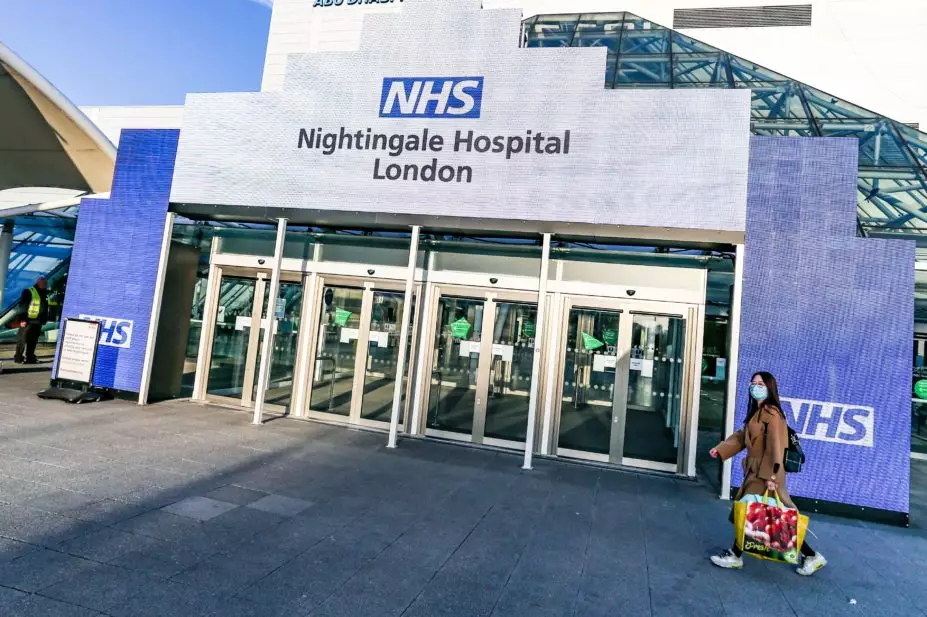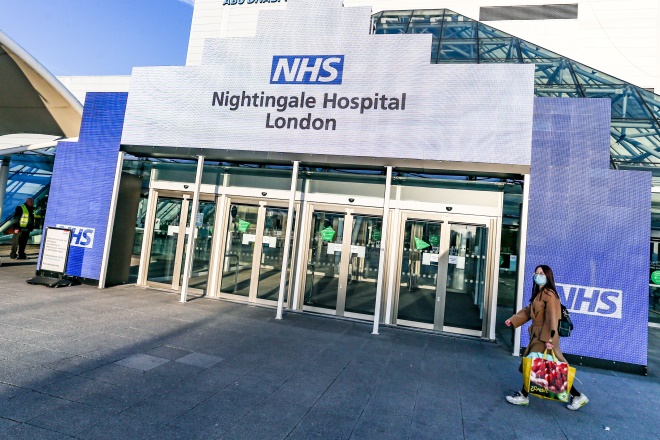
Shutterstock.com
Open access article
The Royal Pharmaceutical Society has made this article free to access in order to help healthcare professionals stay informed about an issue of national importance.
To learn more about coronavirus, please visit: https://www.rpharms.com/resources/pharmacy-guides/wuhan-novel-coronavirus

Source: Shutterstock.com
In March 2020, my boss at the Centre for Pharmacy Postgraduate Education asked me if I could help to deliver pharmacy education at the NHS Nightingale Hospital London, the pop-up field hospital built in just ten days at the ExCeL London exhibition centre to tackle COVID-19.
I’ll admit I was excited by the opportunity to directly make a difference during the pandemic, but there was a lot to consider before making my decision. For example, working in close proximity to other people in an environment where COVID-19 is widespread poses a big risk to my health; but, as a clinician, I always want to help. I talked it through with my family — my risk would be far lower than that of healthcare professionals working with COVID-19-infected patients, I told them — and I decided that I definitely wanted to do it.
Initially, I took on my new challenge in my own time at weekends, juggling the work with my role at LloydsPharmacy. But when McKesson asked all its pharmacists in field roles to return to help in LloydsPharmacy stores, I asked if I could be released to work at the NHS Nightingale Hospital London. I’m now there full time as a pharmacy education liaison lead.
Everything here moves at such pace: I have found myself writing pharmacy training material on a Friday to deliver to non-pharmacy clinicians on the Monday
My role is to ensure that there isn’t a gap between induction training and the clinical model. In other words, I make sure that healthcare professionals receive the training and development they need to give them the confidence and competence to perform their new role safely.
There is a lot to learn very quickly. Everything is new: the teams, the environment, and much of the equipment and resources. And everything here moves at such pace: I have found myself writing pharmacy training material on a Friday to deliver to non-pharmacy clinicians on the Monday.
I have been teaching professionals how to don and doff their personal protective equipment, and how to communicate when wearing it. With most of the face covered, this can be difficult, but discussion about medication between healthcare professionals is critical. We work with some very basic sign language that everyone recognises — the sort of thing you might use when scuba diving.
As well as helping professionals to protect themselves physically, we also, importantly, help them to protect their mental wellbeing. They must be prepared for the high death rate in the intensive care units. We talk about how to prevent post-traumatic stress disorder in the immediate aftermath of their shift, but also in longer term, after the pandemic. This induction session tends to have the biggest impact on our new recruits, who are visibly moved by it.
What’s been different and sometimes challenging about this role is that I am training a multidisciplinary team. Nurses, doctors, physiotherapists, scientists, theatre operators, paramedics — such a varied group has been brought together to learn together.
Our education liaison team sits at the heart of the hospital’s operations. I call it the command room because it feels like a military operation; the fact that the military is present in this room adds to the perception. We attend a daily clinical forum at 16:00, where the senior leaders running the trust discuss strategy and change. All the departments share what they have learnt that day that requires change for the following day.
There’s no time to try things out or get used to ways of working; we have had to learn to work at pace and if things aren’t working, we change them. But we change only what needs changing: we strive for optimum patient care as quickly as we can. Changes to protocols happen within days.
Top leaders from across the NHS have come together to run this field hospital and I am so impressed by our achievements. We’ve created so many great systems and processes that can be passed on to other Nightingale hospitals, such as the Nightingale intensive care unit quick reference guide, which we developed from scratch.
I am astounded at what we have accomplished in such a short space of time and I pinch myself to realise I am playing my part in something so innovative: something at the very heart of our response to the pandemic.
Yinka Kuye, healthcare development manager for LloydsPharmacy; regional tutor, the Centre for Pharmacy Postgraduate Education


